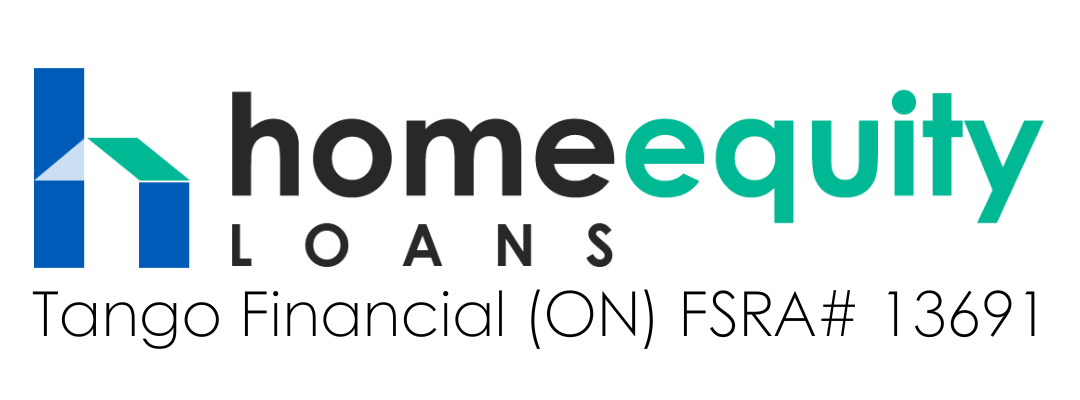Owning a home is more than just having a place to call your own; it’s also a gateway to a valuable financial resource known as home equity. However, the world of home equity loans used for businesses is not without its complexities and potential pitfalls.
Before you tap into your home’s equity to fund your business dreams, you must fully grasp the intricacies and associated risks. In this blog post, we’ll examine how home equity loans can serve as a strategic financial resource to drive the growth and success of your business.
What are Home Equity Loans for Startup Businesses?
When property owners find it hard to qualify for traditional loans, they can easily tap into their real estate assets with a home equity loan, sometimes called a second mortgage.
This option allows them to access extra funds by borrowing against their property’s equity, with monthly payments akin to a primary mortgage.
A home equity loan provides a single lump sum of money, accumulating interest from the start and following a fixed repayment plan. It’s a valuable option for securing the capital to kickstart your startup.
Requirements for Applying for Home Equity Loans
Applying for a home equity loan to fund your business offers a refreshingly straightforward alternative to the often arduous bank loan application process. Banks and institutional lenders typically demand extensive documentation and provide no approval guarantee.
In contrast, home equity loans for business purposes are simpler, with some borrowers obtaining funds in as little as 48 hours.
Pros And Cons of Using a Home Equity Loan to Start a Business
Before deciding, it’s crucial to gain insights into the advantages and risks to make the best financial decision. Following are the pros and cons of using a home equity loan for your entrepreneurial goals:
Pros
-
- Low-Interest Rates: Home equity loans typically offer lower interest rates than other business financing options.
- Flexible Repayment Terms: Borrowers enjoy flexibility in structuring their repayment plans.
- Quick and Easy Application Process: The application process is typically swift and straightforward.
- Refinancing Your Home: It allows you to tap into the equity in your property.
- Entire Amount Granted: You can access the full approved loan amount.
- Tax Deductible: Interest payments may be tax-deductible.
- You Can Use the Money for Anything: The funds can be applied to various business needs.
Cons
-
- Go Through an Approval Process: Approval is necessary, and not all applicants may qualify.
- Need to Have a High Credit Score: A good credit score is often a prerequisite.
- Should Have a Low Balance of Debt: High existing debt levels can hinder eligibility.
- Risk of Losing Your Home: Defaulting on the loan can put your home at risk.
Despite the potential drawbacks, a home equity loan can still be a powerful tool for starting your business. When used responsibly and strategically, it can provide the capital you need to get your entrepreneurial dreams off the ground.
Carefully weighing these pros and cons is essential to making an informed decision, and seeking advice from financial experts can help you navigate this important financial choice.
Utilizing a Home Equity Loan to Start Your Business
If you’re prepared to take the next step, here’s how you can use home equity loan as a tool for launching your business:
1. Assess Eligibility
Begin by assessing your eligibility for a home equity loan, considering factors such as your credit score and loan-to-value ratio (LTV). Seek advice from a specialist to identify the optimal borrowing amount aligned with your financial circumstances.
2. Select the Right Lender
Don’t settle for the first option; shop around for lenders. Compare interest rates, upfront costs, administrative fees, and closing costs. Consider inquiring with your bank about special offers for loyal clients.
3. Develop a Strategic Repayment Plan
Home equity loan monthly payments are often lower, offering flexibility. Consult a financial advisor to create a repayment plan that aligns with your life’s financial goals and potential unexpected expenses, ensuring a strong financial foundation for your business venture.
Alternative Loan Choices for Canadian Businesses
Before committing to a home equity loan, exploring various alternatives that may better align with your business goals is wise.
Utilize online tools to calculate interest rates and repayment terms for different loan options:
1. Business Equity Loan
If you have an established business, consider a business equity loan. It functions similarly to a home equity loan but uses your business, rather than your home, as collateral in case of default.
2. Demographic-Specific Programs
Research grants tailored to your demographic or industry. Look for programs supporting young entrepreneurs, Indigenous-owned businesses, women, Black entrepreneurs, or LGBTQ2S+ business initiatives to tap into specialized opportunities.
3. Smaller Operating and Short-Term Loans
For added financial security during tight times, explore credit lines or larger overdraft protection options within your accounts to prevent bounced checks.
4. Asset-Based Lending
Some banks offer advances, loans, or refinancing tailored to fast-growing businesses with substantial working capital. This option is more suitable for mature businesses but may be relevant for successful startups.
5. Grants and Awards
Canadian businesses can apply for many small business grants offering cash, tax credits, mentoring, and industry-specific recognition. Utilize the government’s business benefits finder to identify suitable opportunities.

Home Equity Loans vs Small Business Loans
When choosing between a home equity loan and a small business loan, several factors come into play:
| Aspect | Home Equity Loan | Small Business Loan |
| Evaluation Criteria | Assesses financial assets, income, credit score, and home equity value. | Evaluates business plan, long-term projections, financial standing, and business viability. |
| Interest Rate | Typically, lower. | Typically, higher. |
| Eligibility Requirements | Primarily based on financial standing and home equity. | May require minimum revenue and time in business. |
| Use of Funds | Fewer restrictions; versatile. | Restrictions on usage; specific purposes. |
| Collateral | Home serves as collateral; risk of home loss. | May require collateral, challenging for new businesses. |
| Suitability | Suitable for those with significant home equity. | Ideal for businesses with a solid plan and track record. |
When deciding between a home equity loan and a small business loan, consider factors like evaluation criteria, interest rates, eligibility, fund use, and collateral. Align your choice with your financial situation, business strategy, and risk tolerance.
FAQs About Home Equity Loan for Business Purposes
1. Can I secure a business loan Canada without collateral?
Traditional lenders typically require collateral for startup business loans, often making it challenging for new entrepreneurs. Alternative lenders, however, use your home equity as collateral, making approval more accessible based on the equity you’ve built in your home.
2. Can I use a home equity loan to acquire a business?
Yes. One significant advantage of using a home equity loan for startup ventures is its versatility. Unlike business loans, which often have usage restrictions, a home equity loan is a personal loan with no limitations. You can use the funds for business or personal expenses, providing flexibility that business loans don’t offer.
3. Are there restrictions on how I can use a home equity loan for a business startup?
There are no restrictions; it’s a versatile financing choice for various business requirements. You can use the funds as necessary for day-to-day operations, expansion, or personal expenses.
4. What are the risks of using home equity for business loans?
While home equity loans offer flexibility, they also carry the risk of your home serving as collateral. Defaulting on the loan could lead to the loss of your home, so it’s crucial to manage the loan responsibly.
5. How does the approval process for home equity loans differ from traditional business loans?
Home equity loans typically focus on your financial standing and home equity, while business loans often require a comprehensive business plan and financial viability assessment. This distinction can make home equity loans more accessible for startup entrepreneurs.
Secure Financing for Your Business with a Home Equity Loan
Home equity loans can serve as a lifeline for entrepreneurs aiming to fund their business dreams. Yet, caution and a well-defined strategy are paramount. Prior to deciding, assess your business plan, risk tolerance, and financial goals meticulously.
Expert guidance can ensure an informed choice that aligns with your long-term vision. Contact HomeEquityLoans.ca to explore your options and kickstart the process of obtaining the funding your business needs.





